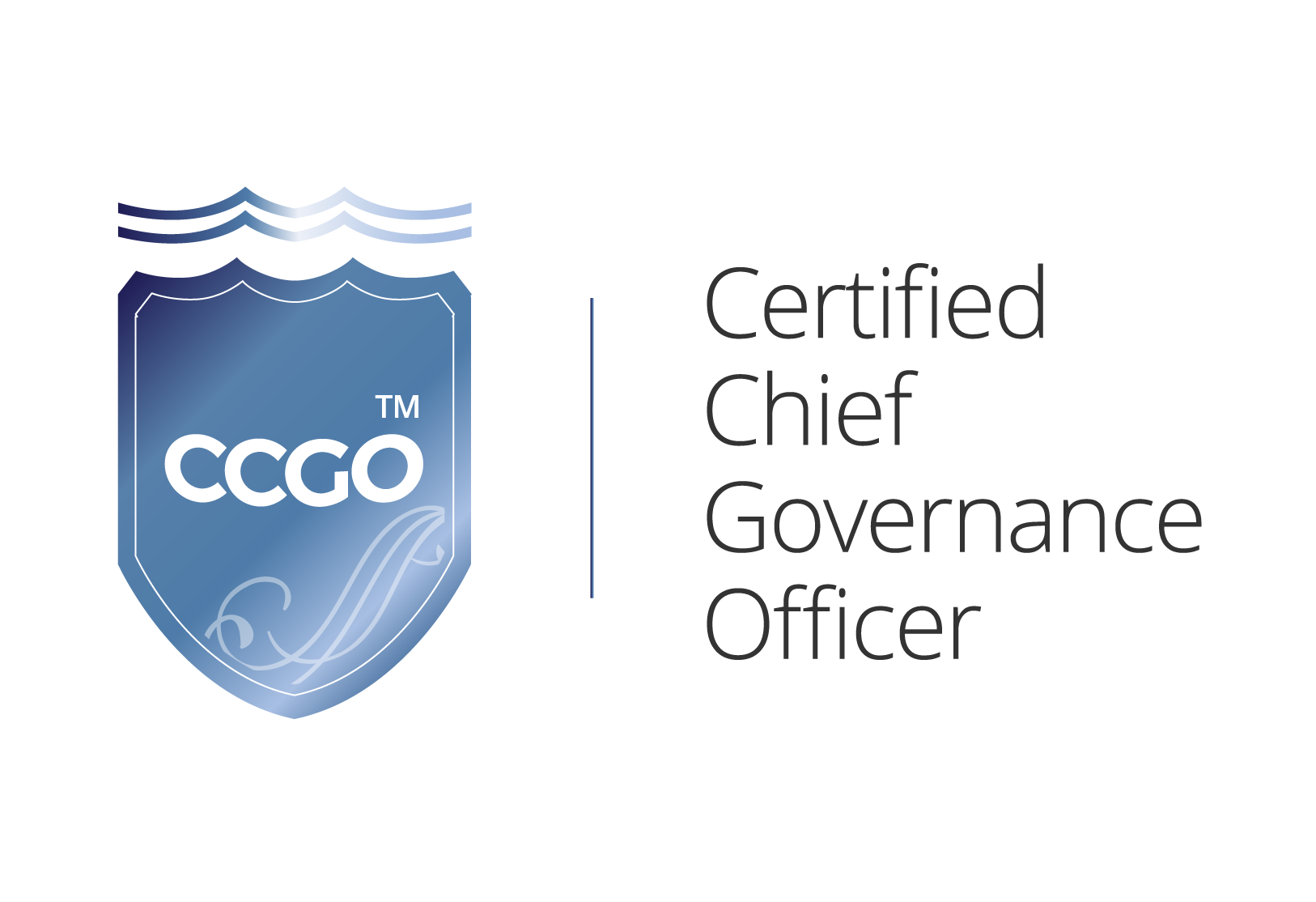CERTIFIED
CHIEF GOVERNANCE
OFFICER

A. Scope
The scope of certification in this scheme is in corporate governance and public sectors area.
B. Job Description
Chief Governance personnel have the certified governance leadership competency (Certified Chief Governance Officer), competence in planning and structuring corporate or public governance, as well as governance-based risk management with the planning and implementing governance practices assignment.
C. Duties and Authorities
- Planning and applying the corporate governance application (if acts as a practitioner in a corporate organization).
- Planning and applying the public governance application (if acts as a practitioner in a public organization).
- Planning and applying governance-based risk management implementation (both as practitioner in corporate and public organizations).
- Ensuring the planning, applying, and monitoring functions of governance and governance-based risk management execute effectively at the organizational strategic level.
- Following up the acts of ethical misconduct reports which submit through management communication channels or equivalent.
- Arranging the planning and conducting the governance and governance-based risk management implementation application which will be conducted by Governance Officer.
- Arranging guidelines/guidance and regulations, as well as enforcing incentives and sanctions system in the organizational environment in order to keep maintaining the governance and governance-based risk management implementation which has been applicated by Governance Officer.
D. Competency
| Code | Title of Competency Unit |
|---|---|
| Implementing 3 (three) supporting pillars of good corporate governance in accordance with the implementation of General Guidelines of Good Corporate Governance of Indonesia, National Committee on Governance Policy, 2006 guidelines | |
| Implementing 5 (five) good corporate governance principles in accordance with the implementation of General Guidelines of Good Corporate Governance of Indonesia, National Committee on Governance Policy, 2006 guidelines | |
| Planning good corporate governance behavior principles in accordance with the implementation of General Guidelines of Good Corporate Governance of Indonesia, National Committee on Governance Policy, 2006 guidelines | |
| Developing code of conduct of good corporate governance guidelines in accordance with the implementation of General Guidelines of Good Corporate Governance of Indonesia, National Committee on Governance Policy, 2006 guidelines | |
| Planning organizational organs structure based on good corporate governance principles in accordance with the implementation of General Guidelines of Good Corporate Governance of Indonesia, National Committee on Governance Policy, 2006 guidelines | |
| Developing 3 (three) supporting pillars (states, business, society) of good public governance in accordance with the implementation of General Guidelines of Good Public Governance of Indonesia, National Committee on Governance Policy, 2010 guidelines | |
| Implementing 5 (five) basic principles (democracy, accountability, transparency, legal culture, and equity) which is consistent good public governance principles in accordance with the implementation of General Guidelines of Good Public Governance of Indonesia, National Committee on Governance Policy, 2010 guidelines | |
| Planning the application of values, ethics, and code of conduct in accordance with the implementation of General Guidelines of Good Public Governance of Indonesia, National Committee on Governance Policy, 2010 guidelines | |
| Developing the application of values, ethics, and code of conduct which is consistent to the good public governance principles in accordance with the implementation of General Guidelines of Good Public Governance of Indonesia, National Committee on Governance Policy, 2010 guidelines | |
| Planning the structural aspect of risk management which is consistent to the good corporate governance principles in accordance with the implementation of General Guidelines of Good Corporate Governance of Indonesia, National Committee on Governance Policy, 2006 guidelines | |
| Planning the operational aspect of risk management which is consistent to the good corporate governance principles in accordance with the implementation of General Guidelines of Good Corporate Governance of Indonesia, National Committee on Governance Policy, 2006 guidelines | |
| Planning the maintenance aspect of risk management which is consistent to the good corporate governance principles in accordance with the implementation of General Guidelines of Good Corporate Governance of Indonesia, National Committee on Governance Policy, 2006 guidelines |
E. Prerequisites
- Basic requirements for certification applicants are Passed on the certified governance work in accordance to KNKG general guidelines training.
- Officiate as a Director (or equivalent) or Head of Division / General Manager (or equivalent), or Corporate Secretary in corporate organization.
- Officiate as Echelon 2 or 3 (or equivalent) official in a public institution.
F. Maintenance of Competence
For applicants who have been declared as “Competent”, will receive a certificate with a 3-years validity period. During the validity period, the requirement to certificate holder is to maintain the competence by attending the Sustainable Certification Program (PSB).
PSB is a program to ensure the LSP LPK MKS certification holders’ competencies keep be maintained. This program operates through collecting the PSB point, as it would be a parameter to measure the certification holders in their professional development activities. Details regarding this guide to be downloaded click here.
G. Recertification
The one of requirements to renew the certificate’s validity period is to actively participate in relevant areas to the Certification Scheme scope. The active participation will be converted into points of the Sustainable Certification Program (PSB). Sufficiency of the collected points by the certification holder with the total points is required to each Scheme which will be used as a reference to renew the validity of the certificate.